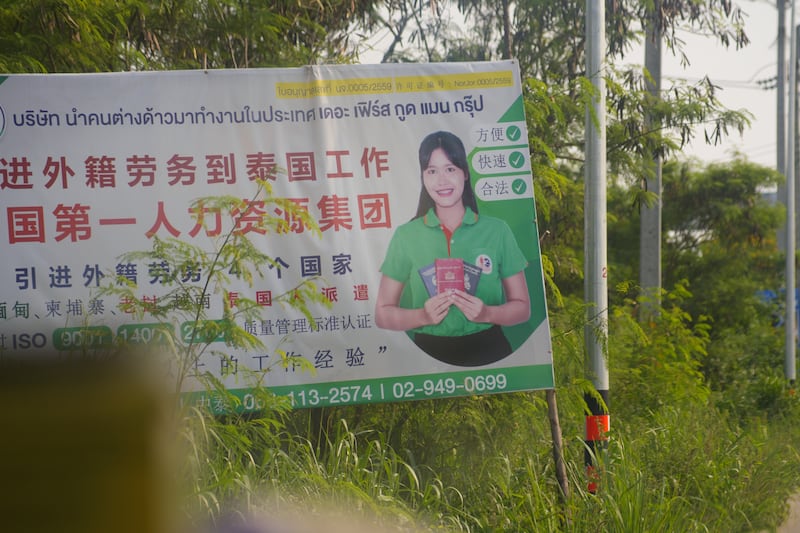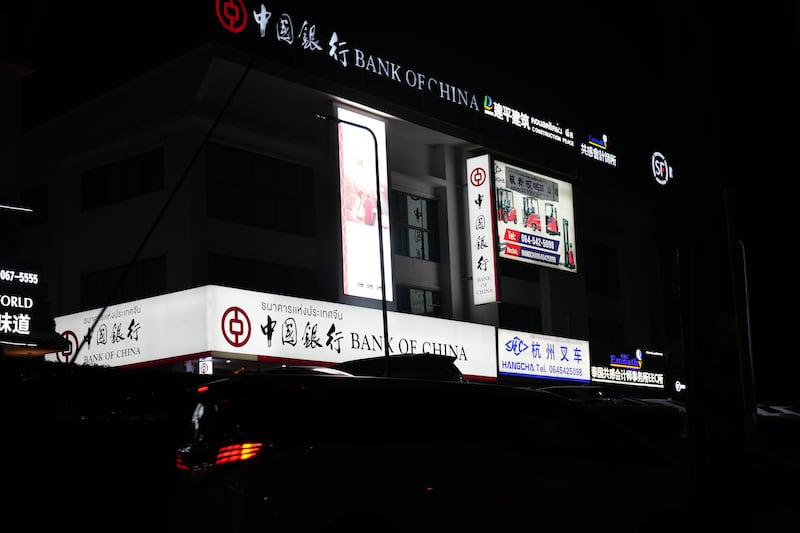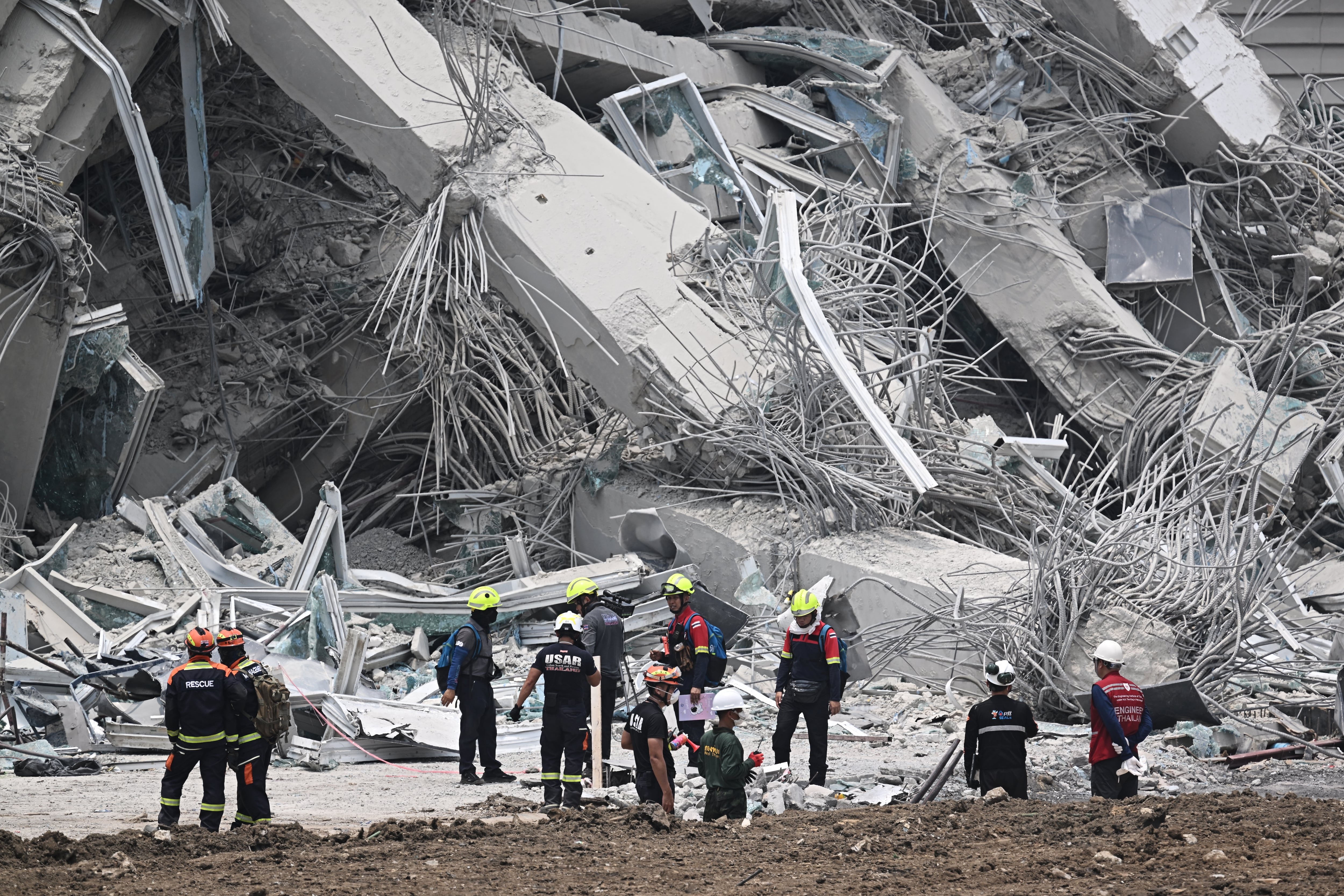BOWIN, Thailand - The collapse of a Chinese-built office tower in Bangkok has added to negative perceptions of China’s burgeoning business presence in Thailand, testing the government’s open door policy to Beijing.
Authorities are investigating why the unfinished high rise imploded, burying dozens of construction workers, following a magnitude 7.7 quake Friday in neighboring Myanmar that was felt around the region. It was the only Bangkok high rise to collapse. Initial tests of construction material from the site indicated the presence of substandard steel.
The disaster is red meat for some Thai politicians and could reinforce disaffection that has been bubbling at the grassroots because of perceptions that Chinese companies and investment don’t benefit locals.
“Only one building collapsed,” Industry Minister Akanat Promphan told reporters even as he declared he wasn’t jumping to conclusions about the cause of the disaster.
“I guess the public could tell the reason why it fell,” said Akanat, who for several months has campaigned against an apparent epidemic of defective Chinese industrial products in Thailand.
China became the largest foreign investor in Thailand for the first time in 2019, displacing Japan which had held the title for decades, and again in 2023, according to Thailand’s investment promotion agency.
Chinese companies were spurred to invest in Thailand in part because of U.S. tariffs on Chinese exports imposed by the first Trump administration. The tariff-dodging strategy is now in doubt after President Donald Trump on Wednesday announced sweeping new tariffs targeting almost all countries including a 36% tariff on goods from Thailand.
Amid blanket negative media coverage of the Chinese construction company’s role in the disaster, Beijing’s embassy in Bangkok said its companies abroad are always expected to act legally and contribute to society.
“China fully supports and fulfills the needs of Thailand and calls on relevant Chinese companies to cooperate fully with the Thai government in investigating the cause. [We] believe that the Thai government investigation will lead to fair, scientific results,” an embassy spokesperson said.
On Tuesday, Thai Prime Minister Paetongtarn Shinawatra met Wang Chengjie, the chair of Chinese luxury carmaker FAW Hongqi Overseas, at Government House in Bangkok, in a sign of the government’s continuing welcome for Chinese companies.
Paetongtarn said she enjoyed traveling in a luxury Hongqi limousine during a recent visit to China and was confident FAW’s investment in Thailand would bring benefits to both countries, Thai media reports said.

But in Thailand’s industrial heartland east of Bangkok, a Chinese enclave of shops, massage parlors, karaoke bars and apartments that sprung up in Bowin, a factory town, highlights the common complaints about lack of benefits for the Thai economy.
Residents, labor advocates and some lawmakers say all the transactions in the enclave are in Chinese yuan through the Chinese payments app Alipay and don’t benefit the local economy.
Labor groups complain that many Chinese-owned factories in what the government dubs its eastern economic corridor avoid employing Thai nationals.
“There are more and more Chinese factories but they don’t hire many Thai nationals,” Jirun Petra, an advocate with the Eastern Labor Relations Group, told Radio Free Asia. “They used laborers from our neighboring countries instead because they are unlikely to dispute the bosses.”
“We don’t mind the Chinese investments in this region,” Jirun said. “But they have to employ Thai workers according to a regulated proportion.”
Construction of the Bangkok high rise, which was to be the new home for Thailand’s state audit agency, was overseen by a joint venture between state-owned China Railway No. 10 Engineering Group and Thai construction company Italian-Thai. In a statement, they said they had acted legally and abided by quality controls.
It was the tallest building ever undertaken by the Chinese company, according to Seatao, a Chinese site that reports on Beijing’s Belt & Road global infrastructure plan.
Akanat, the industry minister, said most of the steel tested was from a single manufacturer.

An opposition lawmaker, Chutiphong Pipoppinyo, said on his Facebook page some of the steel matched that produced by two Chinese-owned factories that were ordered shut by the government in December.
“It’s not only these factories that caused trouble,” Chutiphong said.
“There are tens of thousands of Chinese nationals who keep coming with visa-free campaigns through [employment] brokers,” he said. “They build their own dormitories and transfer money back without paying taxes.”
Problems with the quality of steel in Thailand are a product of official corruption and cost cutting at Chinese-run factories, said Somsak Tippayarat, owner of a metals recycling business in central Thailand.
“They distorted the price structure with shoddy products,” he told Radio Free Asia. “They made samples to acquire the state industrial standard approval first then opted for substandard ones [in commercial production],” he said.
Edited by Stephen Wright and Mike Firn.

